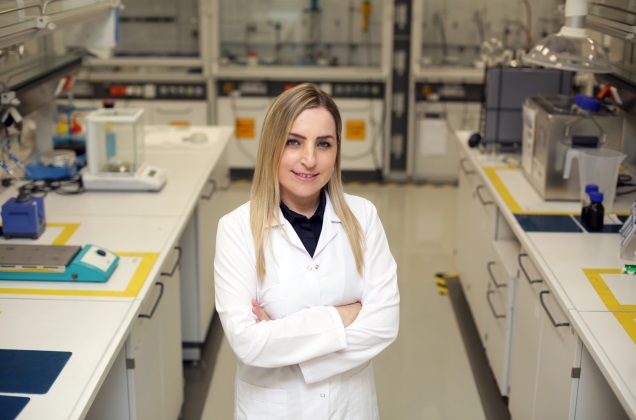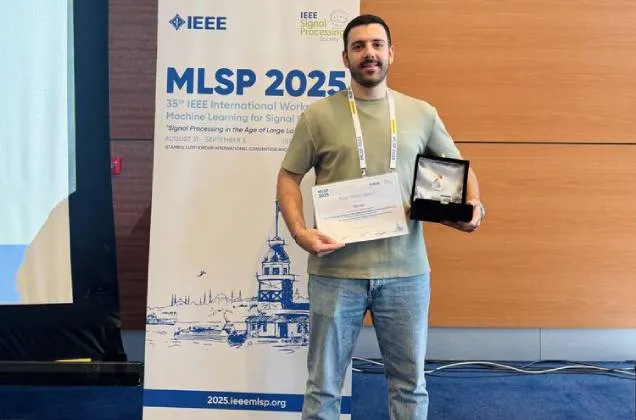04/08/2021
The project which Burcu Saner Okan, faculty member of Sabancı University Integrated Manufacturing Technologies Research and Application Center (SU IMC), coordinates and has submitted in collaboration with Arçelik has been found worthy of support in the framework of the TÜBİTAK 1505 University-Industry Cooperation Support Program.

Burcu Saner Okan’s project is entitled “Development of hybrid-reinforced thermoplastic compound formulations through graphene made of waste plastic for the white goods sector, and cost-effective and lightened prototyping.” The project will last two years and aims to integrate recycled graphene made of waste plastic with thermoplastic composites, and its adaptation to serial production and scaling for use in the white goods sector.
Graphene from waste plastic will be provided by the Nanografen company, a Sabancı University spin-off, of which Burcu Saner Okan is a founding partner. The project is coordinated by Burcu Saner Okan, faculty member of SU IMC, and supported by Gülayşe Şahin, a TÜBİTAK 2244 scholar, Mustafa Sezer, R&D manager, and Dr Orkun Kaymakçı, technology team leader of the client company, Arçelik.
Mentioning the importance and details of the project, Burcu Saner Okan said, “So far, graphene has been used in specific and high-cost fields and projects such as medicine, sensors, batteries, supercapacitors and foldable touch screens. The fact that graphene is costly and cannot be distributed homogenously in polymer processing constitutes a barrier to its commercialization in commodity products in the plastics sector. In the scope of this project, graphene produced by Nanografen at low cost and in a sustainable way from waste plastic will decrease the amount of filling materials in plastics used in the white goods sector, lower the weight of parts and shorten the cycle period. At the end of the project, graphene will be converted into a commercial product and used in engineered plastics that are very commonly used in the white goods sector.”




